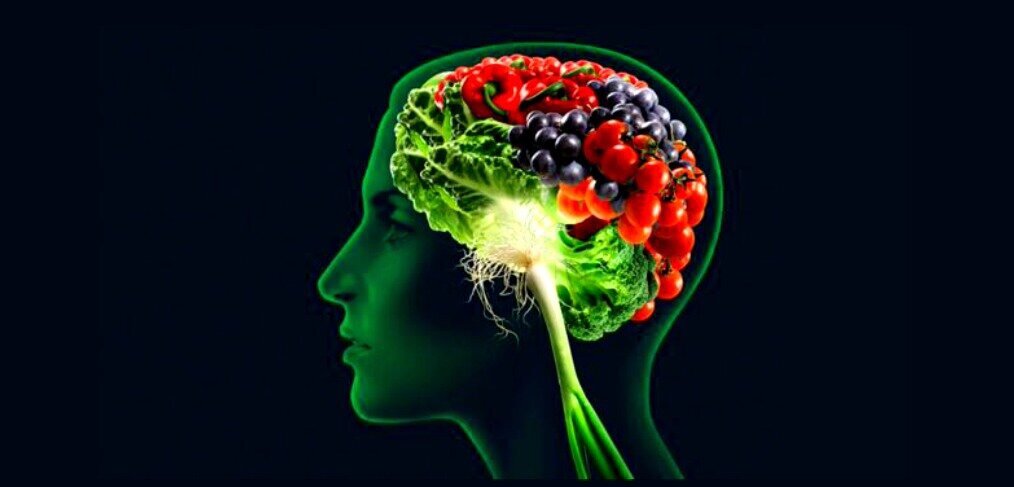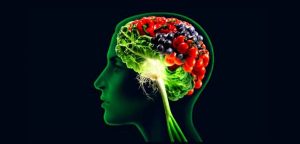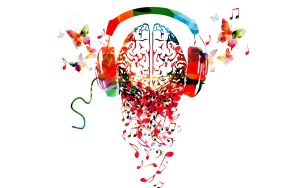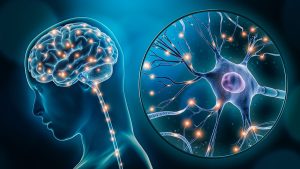Exploring the Mind-Body Connection
From the vantage point of a spiritual guide and clinical psychologist, the concept of mind-body connection is more than a mere hypothesis. It is firmly rooted in reality, an indication of how profoundly our physical state influences our mental state and vice versa. The mind and body are not two separate entities, but rather parts of an integrated whole. Our thoughts, beliefs, feelings, and attitudes can positively or negatively affect our biological functioning. Similarly, what we do with our physical bodies can impact our mental state.
As a personal coach and counselor, I’ve observed how this connection plays out in numerous scenarios. Let’s say, for instance, a person maintains a very sedentary lifestyle. Over time, this physical inactivity can lead to feelings of lethargy, low energy, and even depression. On the flip side, I’ve seen individuals who were dealing with anxiety or depression significantly improve their mental health by making certain physical changes – like adopting a regular exercise routine or modifying their diet.
This brings us to a significant aspect of the mind-body connection: nutrition. While the influence of diet on physical health is rather apparent, its role in governing mental health is often overlooked. Everything we consume can impact our brain, which further affects our thoughts, emotions, and overall mood. The gut, often dubbed the second brain, helps produce neurotransmitters like serotonin and dopamine, which play a pivotal role in regulating our mood. Therefore, it is of utmost importance to maintain a balanced diet – one that feeds both the mind and the body.
Nutritional psychiatry is emerging as a significant discipline in mental health care, evidencing how essential nutrients, as part of a regular diet or in supplement form, can protect and support mental health. A more profound understanding of the role of food in our mental well-being opens up opportunities for preventive care as well as optimized treatment strategies.
Therefore, exploring the mind-body connection and its nuanced relationship with nutrition serves as a crucial step in fostering holistic wellness. Understanding these intricate linkages and integrating them in our everyday discussions about mental health can lead to more comprehensive and effective strategies for wellness, personal growth, and healing. With that understanding, we can create a blueprint for mental health that nourishes the body, the mind, and the spirit.
Fundamentals of Nutrition
As a holistic practitioner, I believe that understanding the basics of nutrition is vital in appreciating how it affects both our physical and mental health. Nutrition is not just about eating enough; it’s about feeding your body with a variety of nutrients that support its overall functioning. At the root of this, there are six essential types of nutrients that our body requires for optimum health: carbohydrates, proteins, fats, vitamins, minerals, and water.
Carbohydrates, proteins, and fats, also known as macronutrients, provide energy while vitamins, minerals, and water—classified as micronutrients—are crucial for various physiological processes, without which our health would greatly suffer. A balanced diet containing these nutrients in the right proportion ensures our physical wellness and significantly influences our emotional and mental health too.
Now, you may wonder, “How does what I eat affect my mind?” The connection lies primarily in the gut-brain axis, a communication channel linking the central nervous system with our digestive tract. A sizable portion of our neurotransmitters—chemical messengers that influence our mood, sleep, appetite, and more— is produced in the gut. Certain nutrients, like Omega-3 fatty acids, B-vitamins, and antioxidants, are also known to promote brain health.
Furthermore, clinical research has found a strong correlation between an unbalanced diet and mental health disorders. Consuming high quantities of processed foods, sugars, and unhealthy fats, while skimping on fruits, vegetables, lean proteins, and whole grains, may put you at greater risk for conditions like depression and anxiety.
By providing our bodies with the right nutrition, we are laying a strong foundation for good mental health. Not only does a balanced diet enable the body to function properly, but it also supports brain health, mood regulation, and stress management, all of which are integral to our psychological wellbeing. It’s about time we acknowledge that feeding the body also means nourishing the mind. A holistic approach to health isn’t complete without considering the critical role of nutrition in mental wellbeing.
The Science Behind Food and Mood
Our brain, much like the rest of our body, requires certain nutrients to function optimally. These nutrients influence the production of neurotransmitters in the brain which are crucial for many of our mental functions, including mood regulation. Proteins, for example, are broken down into amino acids which are used to create neurotransmitters. These include dopamine and serotonin, commonly known as the “happy hormones” due to their role in promoting feelings of happiness and well-being.
Serotonin is predominantly made using an amino acid called tryptophan. Tryptophan absorption is influenced by the balance of carbohydrates and proteins in our diet. Consuming a diet high in carbohydrates can increase tryptophan levels in the brain, ultimately maturing to a heightened serotonin production. No wonder many people associate comfort and happiness with carbohydrate-rich food items!
Omega-3 fatty acids, found in fatty fish, walnuts, flax seeds, and chia seeds, are instrumental in the structure and function of brain cells. DHA, a type of Omega-3 fatty acid, is a key structural component of the brain and its deficiency could lead to cognitive issues and mood disorders simultaneously. Moreover, Omega 3 fatty acids are known to influence Dopamine and Serotonin pathways, adding to their significance in maintaining mental wellbeing.
Equally important are the B vitamins, particularly B6, B9, and B12. These vitamins aid in the formation of brain chemicals, that regulate mood and other brain functions. Insufficiency of these key vitamins can result in lower serotonin production, often leading to depressive symptoms. These vitamins are commonly found in leafy greens, beans, peas, poultry, and meats.
Gut health shouldn’t be underestimated. The gut microbiome can send signals to the brain via the gut-brain axis, influencing our mood and emotions. Consuming probiotics and prebiotic foods can support a healthy gut microbiome, and in turn, contribute to better mental health. In conclusion, the connection between nutrition and mental health is both fascinating and complex, further research is decoding the impact of specific nutrients on our mental well-being. Nonetheless, even with our current understanding, it’s clear that maintaining a balanced diet rich in essential nutrients is pivotal for both, our physical and mental wellbeing.
Brain Food: The Role of Omega-3s, B-Vitamins, and Other Vital Nutrients
As someone who supports people’s mental wellbeing in various capacities, I cannot stress enough the importance of a balanced diet packed with essential nutrients. Our brain, being the complex and energy-consuming organ that it is, has a direct link with the food we consume. Let’s start discussing some significant nutrients and their impact on our mental health.
Omega-3 fatty acids are one such essential nutrient that plays a significant role in our mental wellbeing. These are vital fats that you must obtain from your diet as our bodies cannot produce them. Research has suggested a connection between omega-3s and brain health, specifically concerning mood disorders. Omega-3s are involved in the production of neurotransmitters (brain chemicals responsible for our emotions), thus helping to regulate mood and relieve depression symptoms.
B-vitamins also play an important role in maintaining good mental health. For instance, vitamin B9 (folate) assists in the formation of DNA and neurotransmitters, and a deficiency may lead to depression. Similarly, vitamin B6 helps in the production of amino acids and neurotransmitters such as serotonin and norepinephrine, both critical for mood regulation. A deficiency could potentially result in depression and confusion. Vitamin B12, on the other hand, helps in maintaining the health of nerve cells and can also affect mood and memory.
Diet is not only about the aversion of nutrient deficiencies but also about the consumption of a range of beneficial phytochemicals present in fruits, vegetables, and whole grains. For instance, antioxidants found in various brightly colored fruits and vegetables can protect brain cells from damage and support the production of neurotransmitters.
Our understanding of the impact of diet on mental health is continually evolving, reflecting the complexity of the brain and the reciprocal relationships between our body and diet. But it’s clear that the food choices we make have a significant impact on our mental wellbeing. Thus, considering both physical and mental health in making dietary choices could potentially create a positive change in our overall health.
Food Sensitivities and Their Impact on Mental Health
As a seasoned health and wellness guide, I want to stress the importance of identifying triggers in our diet that might be affecting our mental health. You may not be initially aware of this, but certain food items that we frequently consume may produce unfavorable reactions in our bodies, thus influencing our mental well-being.
Food sensitivities are one such commonly overlooked aspect. They differ from outright food allergies, where responses are immediately noticeable- such as skin rashes or respiratory issues. Sensitivities, on the other hand, may elicit more subtle and delayed reactions. These could include irritable bowel syndrome, migraines or fatigue, symptoms that we often dismiss or try to manage without investigating potential underlying causes.
Apart from physical discomforts, food sensitivities may also contribute significantly to mental health conditions. Studies suggest that certain food sensitivities can cause mood swings, anxiety, depression, and ADHD symptoms. This mostly happens due to inflammation in the gut caused by an irregular immune response to certain food items. This inflammation can disrupt the balance of neurotransmitters in our brain, causing various mental health symptoms.
A key factor in determining these triggers is to listen to your body and understand its unique needs. Keeping a food diary can be helpful in this regard, as it provides a detailed look at what you consume and how it affects you mentally and physically after consumption. Bear in mind that these reactions may not be immediate and can take a few hours to manifest.
It’s essential to consider professional help when exploring food sensitivities. Consulting with a dietitian or a psychologist can give you the guidance you need to accurately interpret your food reactions and adjust your diet as necessary. It’s important to remember that while nutrition does have a substantial impact on our mental health, it is only one aspect. Engaging in holistic practices such as exercise, getting proper sleep, and maintaining social connections are also crucial for overall mental well-being.
Emotional Eating Vs Mindful Eating
In my experience as a mental health professional, I’ve noted the distinguishable differences between emotional eating and mindful eating. Emotional eating essentially stems from feelings instead of hunger. It’s when we use food to make ourselves feel better—to fill emotional needs, rather than our stomachs. Unfortunately, emotional eating seldom fixes emotional problems. In fact, it usually complicates them as the real problem is not addressed and feelings of guilt pile up leading to an unhealthy cycle.
By contrast, mindful eating is a practice that helps us to pay attention to what we’re eating and why. It’s a process that intervenes between the thought of eating and making the decision to eat. It allows us space to explore the physical sensation of hunger and fullness, and our emotional state. Mindful eating is a powerful tool to gain control of our eating habits. The awareness that it cultivates can also lead us to a profound appreciation of the food we consume.
Interestingly, emotional and mindful eating can sometimes overlap. For example, someone who is feeling a strong physical sensation – like hunger – may mistake this for an emotional sensation, like anxiety, and eat to calm down. However, with mindfulness, we can learn to differentiate between physical and emotional cravings, overcoming a significant barrier to emotional health and physical well-being.
Mindful eating involves eating slowly, without distraction, listening to physical hunger cues and distinguishing them from emotional cravings. It’s about recognizing your body’s signals for hunger or fullness and responding carefully, not mechanically. Endowed with mindfulness, you learn to replace automatic thoughts and reactions with more conscious, healthier responses.
So, cultivate mindfulness to recognize emotional and physical hunger, to appreciate the impression of each bite. Mindful eating can support us in making healthier choices, feel more satisfied with our meals, and potentially prevent certain mental health issues. Ultimately, with understanding and practice, we can turn each meal into an experience that’s nourishing both for our bodies and our minds.
Dietary Adjustments for Better Mental Health
Let’s leap right into the concrete steps that you can implement in your everyday life to improve your mental health through nutrition. First and foremost, it’s vital to dominate the ‘art of eating.’ Stick to a regular eating schedule to maintain stable blood sugar levels and avoid mood swings. I recommend three balanced meals and two healthy snacks each day. Furthermore, these meals should be nutritionally dense, incorporating a balance of proteins, good fats, vegetables, fruits, and whole grains.
Increasing your intake of Vitamin-D rich foods like oily fish, eggs, cheese, or fortified foods like cereals can help keep depression at bay. Omega 3 fatty acids found in fish, walnuts, chia seeds, and flaxseeds have shown significant benefits in managing mood disorders. Inclusion of selenium-rich foods such as Brazil nuts, fish, brown rice, and eggs can also promote mental well-being.
In addition, it’s time to rethink your caffeine and alcohol consumption. Although these may appear to help with stress and anxiety temporarily, they can actually worsen the symptoms in the long-run. Moderation is key, and if you’re grappling with certain mental health issues, consider seeking guidance on consumption limits.
Pay special care to make hydration a priority. Just like our physical body, our brain needs water to function smoothly. Dehydration can lead to confusion, irritability, and even contribute to symptoms of anxiety and depression. Aim to drink at least 2 liters of water a day; this can include unsweetened teas or herbal infusions as well.
Remember that radical changes in diet can cause undue stress, defeating the purpose of dietary adjustments. Start with small, manageable changes; it’s not just about what you eat, but managing how you eat, how much you eat, and maintaining a regular eating pattern. A healthy diet is not an overnight phenomenon but a lifestyle choice. With careful planning and commitment, you can wield the power of nutrition for optimal mental health.
The Relationship between Nutrition and Common Mental Disorders
In my professional journey as a coach, psychologist, and spiritual guide, I’ve noticed a consistent interaction between what we consume and the state of our mental health. This connection becomes particularly profound when it comes to common mental disorders such as depression, anxiety, and stress-related disorders. Evidence suggests that our dietary choices significantly influence these conditions, emphasizing the pivotal role nutrition plays in our mental wellbeing.
To begin with, depression, one of the most common mental health disorders worldwide, has been linked to a poor nutritional intake. Diets low in fruits, vegetables, whole grains, and lean proteins, but high in processed foods and sugars, may exacerbate depressive symptoms. These diet patterns lead to fluctuations in blood sugar, inflammations and brain changes that can cause mood swings and may contribute to the development of depression.
Similarly, with anxiety disorders, the nutrients (or the lack thereof) that our bodies consume can significantly affect symptoms. For instance, lack of Omega-3 fatty acids, commonly found in fish oils, has been associated with higher anxiety levels. They play a critical role in brain function and a deficiency might affect mood and cognitive functioning.
Moreover, stress-related disorders can also be influenced by nutrition, as certain foods have been found to both reduce and induce stress. To illustrate, foods high in sugar and caffeine may stimulate the body’s stress response leading to anxiety, disturbed sleep, and even panic attacks in extreme cases. On the other hand, foods like nuts, seeds, and certain fruits and vegetables can help reduce stress by promoting the production of serotonin, a calming hormone in the brain.
What fascinates me the most is the cyclical relation between nutrition and mental health. Not only can nutritional deficiencies exacerbate symptoms of mental disorders, but these disorders can also lead to further nutritional deficiencies, creating a downward spiral. Consequently, addressing diet patterns, alongside psychological interventions, is incredibly important in the management and potential recovery from these disorders.
Case Studies: Healing Mental Health through Nutritional Therapy
One compelling case I have encountered dealt with a woman in her mid forties. She had consistently reported symptoms of anxiety and intermittent bouts of depression. While her psychological therapies and medications were helping to some degree, the patient felt her progress was inadequate. After a thorough assessment of lifestyle and diet, I noticed she had a high consumption of processed foods, was deficient in several key nutritional components, and had blood sugar dysregulation. I suggested a complete overhauling of her diet, replacing processed foods with whole foods, and incorporating a regimen of a balanced set of nutritional supplements, including Omega-3 fatty acids, vitamins B and D, probiotics, and magnesium. In a span of six months, this client reported a remarkable reduction in her anxious and depressive symptoms, enhanced energy levels, and improved sleep quality.
Another memorable case was a young adult who spent much of his time playing computer games and consuming fast food, full of trans-fats and simple carbohydrates. He was struggling with issues of low motivation, irritability, and generalized apathy, often bordering on depression. With the negativity, his performance at work and personal relationships were adversely affected. My initial instinct was to introduce cognitive-behavioral therapy, but when I discovered his dietary habits, I decided a nutritional approach was also necessary. We worked together to improve his nutrition, introducing nutrient-dense foods, reducing sugar, and incorporating exercise. What ensued were drastic improvements not only in his mental health, but also in his overall enthusiasm and life fulfillment.
Next, I came across a teenage girl who would experience unpredictable episodes of severe anxiety. The episodes were previously attributed to varying emotional distresses, but I thought there might be more to the picture. Upon analyzing her diet, it was found she frequently skipped breakfast, drank significantly large quantities of caffeinated drinks, and indulged in high sugar snacks. Addressing these issues, we co-developed a plan to stabilize her blood sugar by eating regular meals and snacks, reducing caffeine intake, and incorporating balanced, nutritional foods. Her parents reported to me a few months later that the severity and frequency of her anxiety attacks had notably decreased.
These are just a few examples from hundreds of patients that I’ve had the privilege to work with over the years. They stand testament to the huge impact diet can have on mental and emotional wellbeing. Nutritional therapy can, by no means, replace professional mental health treatment, but it can surely act as a powerful adjunctive therapy that can significantly enhance the efficacy of other therapeutic interventions.
Future Research: Where We are Heading in the Intersection of Nutrition and Mental Health
My vision for the future of research at the intersection of nutrition and mental health is manifold, encompassing a broad range of interconnected yet independent facets.
One emerging line of inquiry involves exploring the role of the gut microbiota in mental health. The gut-brain axis is an exciting frontier where we’re just beginning to unravel the complex connections. Probing the interplay of gut microorganisms and mental health and how nutrition can modulate this balance is ripe for further exploration. Unraveling the mechanisms underlying this connection could help us in designing nutritional interventions to combat mental health disorders.
Another promising direction is the study of epigenetics and how food consumption might influence gene expression and thus impact mental health. It’s a field still in its infancy, but it potentially holds the key to understand the long-term impacts of diet in mental health. Delving deeper into this could provide more targeted and individualized dietary recommendations for mental health support.
Research must also keep refining our understanding of how nutrients interact with the brain and other biological systems. This will involve large-scale studies, advanced technology, and collaboration across multiple disciplines. As we develop a more nuanced understanding of mental health, looking individually at different micronutrients may not be as effective as examining whole diet patterns in relation to mental health outcomes.
Finally, the structural issues that underpin food and mental health cannot be ignored. Factors like food security, social inequalities, and barriers to healthy food access all play a role in mental health outcomes. Future research must therefore consider these broader social determinants as part of an integrated approach to mental health and nutrition.
With these ambitious visions in mind, it is my belief that, on the horizon, we will continue to unearth the profound influence of nutrition on our mental health. While much has been learned, there is still a vast landscape that awaits our exploration. As researchers, practitioners, and individuals, we must remain open, inquisitive, and innovative as we move through this exciting era of discovery.








